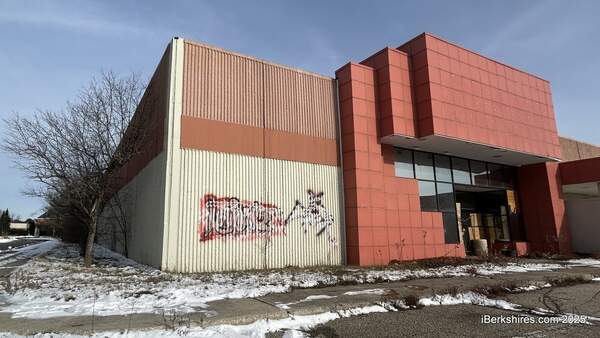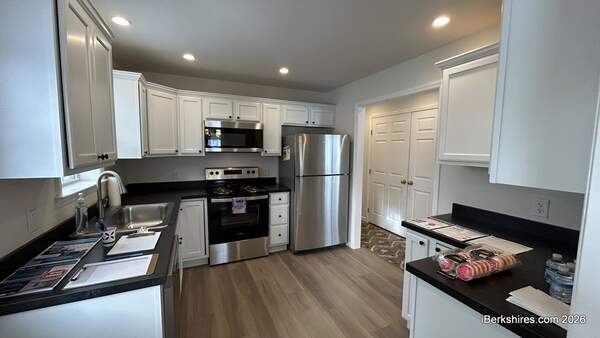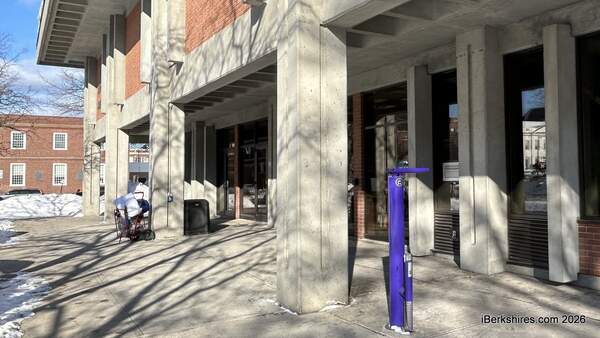
Regional Planning Commission Tackling County Housing Issue
PITTSFIELD, Mass. — The Berkshire Regional Planning Commission is taking steps to address the ever-growing problem of housing that Berkshire County faces.
"What we have been hearing and learning is that housing is becoming increasingly a problem in Berkshire County," Executive Director Tom Matuszko said at Thursday's commission meeting. "And a problem for a number of different ways and a number of different venues."
BRPC has partnered with countywide economic development organization 1Berkshire to develop a regional housing strategy, a policy that will set the stage for solutions and legislative support. The commission's former director, Nathaniel Karns has agreed to take this project on and help shepherd it through the process.
Matuszko explained that a group of planners and other housing-related entities has been formed to develop the regional strategy. This group will dive into the issue of housing in Berkshire County and brainstorm solutions whether it be a legislative fix, additional funding, or another programmatic element from the state government.
This initiative is not just about affordable or subsidized housing, Matuszko said, because you have to have higher-end housing for those in the applicable income bracket to move into, which then frees up more affordable housing for another group.
Right now the planners are framing out areas of concern and will then move into best practices, deciding what they should be looking at, and what would work best in Berkshire County. Matuszko said it is important to contact stakeholder groups to ask what their barriers, issues, and concerns are.
Five themes related to housing in the Berkshires were outlined to help frame the group's thinking through this process.
The first is a lack of diversity for quality housing options throughout the region. Matuszko said the county doesn't have the right mix of updated housing and apartments. In general, apartment units and housing stock in Berkshire County are older and there is not much new development.
Matuszko also said there isn't a welcoming framework in many Berkshire communities for new housing. The "not my back yard" state of mind is reportedly becoming more of a problem in the county, especially in terms of multifamily housing developments.
A lack of municipal readiness is a theme that Matuszko said plagues the county in terms of new development. He said many towns have put up regulatory barriers that make it hard to develop and there doesn't seem to be the right infrastructure to support a population increase or land availability.
The development community in Berkshire County is reportedly another aspect of the housing issue, with a lack of well-capitalized, experienced developers and a lack of correct information to encourage them.
The final, and arguably most prominent regional theme is housing insecurity, which leads to the issue of homelessness. Matuszko said this is seen particularly in Pittsfield with the addition of a new homeless shelter and the promise of additional sheltering downtown.
"I think there needs to be more of a regional approach," he said. "There needs to be more education about homelessness being a regional problem."
Rene Wood of Sheffield suggested that administrative processes are added to the themes of concern, especially for small towns.
"Sheffield is a small town, we don't want to become a housing authority, we don't want to put the structure in place like some other towns like Stockbridge have where you have to have the skill set to manage it," she said. "We struggle to get the stuff done that we have to get done right now."
The commission also discussed the issue of gentrification in Berkshire County.
This was brought to Matuszko's attention before the COVID-19 pandemic when speculative buyers were surveying North Adams, buying up properties, and moving tenants out of affordable housing situations so they can be redone.
Nancy Socha of Stockbridge said events of gentrification are happening when out-of-state buyers continuously outbid locals and utilize properties for pricey vacation rentals.
"We're seeing a lot of our houses, because of COVID-19, the prices have doubled, so the average person can't buy in it," she said. "But we're getting a lot of out-of-state people coming up and buying the properties."
Tags: affordable housing, housing,















